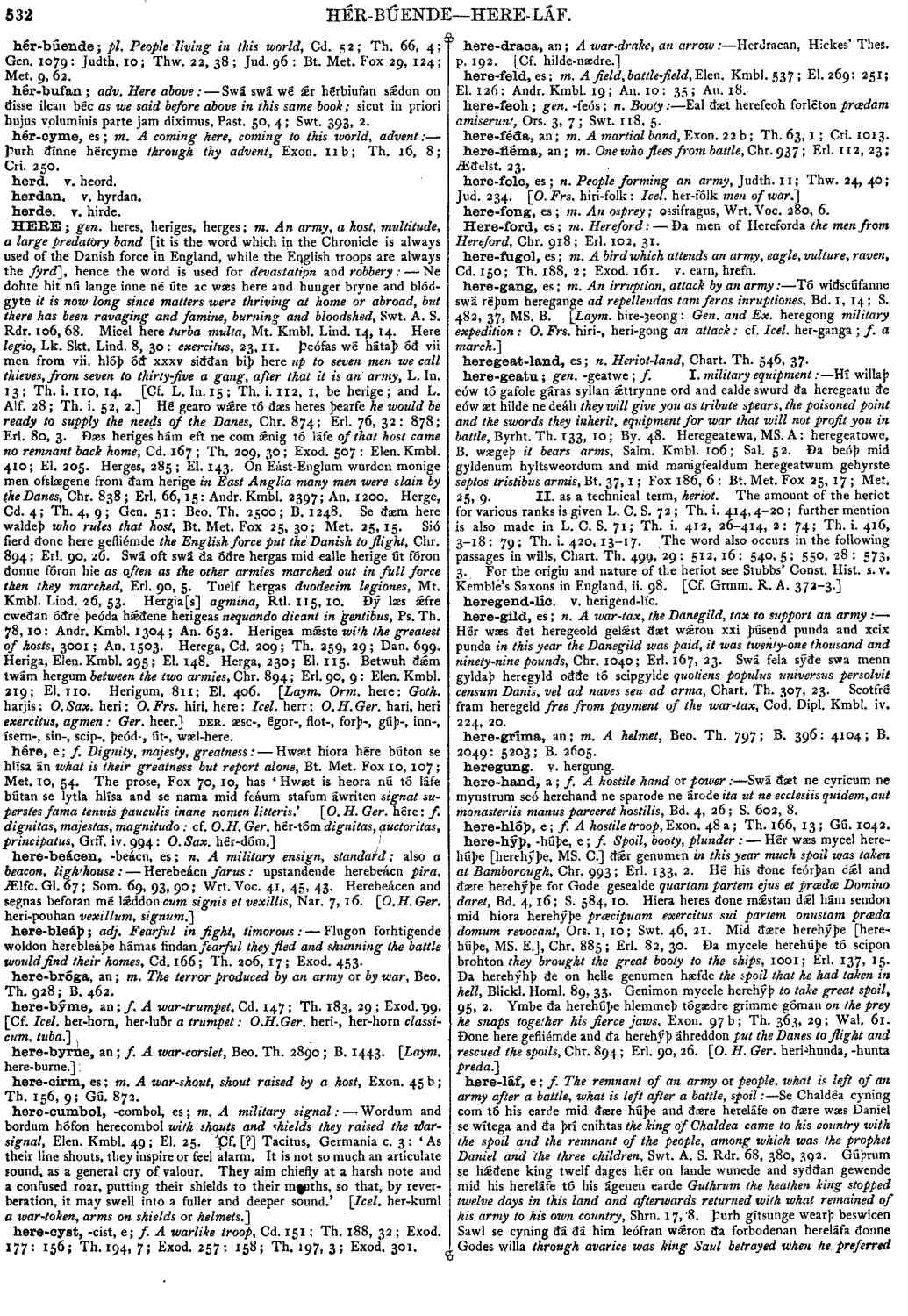here-láf
- noun [ feminine ]
-
Se Chaldéa cyning com tó his earde mid ðære húþe and ðære hereláfe on ðære wæs Daniel se wítega and ða þrí cnihtas
the king of Chaldea came to his country with the spoil and the remnant of the people, among which was the prophet Daniel and the three children,
- Swt. A. S. Rdr. 68, 380, 392.
-
Gúþrum se hǽðene king twelf dages hér on lande wunede and syððan gewende mid his hereláfe tó his ágenen earde
Guthrum the heathen king stopped twelve days in this land and afterwards returned with what remained of his army to his own country,
- Shrn. 17, 8.
-
Þurh gítsunge wearþ beswicen Sawl se cyning ðá ðá him leófran wǽron ða forbodenan hereláfa ðonne Godes willa
through avarice was king Saul betrayed when he preferred the forbidden spoils of the host [of the Amalekites, v. 1 Sam. xv. 9] to the will of God,
- Basil. admn. 9; Norm. 54, 8.
-
Costontinus ne Ánláf mid heora hereláfum hlehhan ne þorftun
not Constantine nor Anlaf, with the remnants of their forces, had cause for laughing,
- Chr. 937; Erl. 114, 13; Æðelst. 47.
Bosworth, Joseph. “here-láf.” In An Anglo-Saxon Dictionary Online, edited by Thomas Northcote Toller, Christ Sean, and Ondřej Tichy. Prague: Faculty of Arts, Charles University, 2014. https://bosworthtoller.com/18890.
Checked: 1